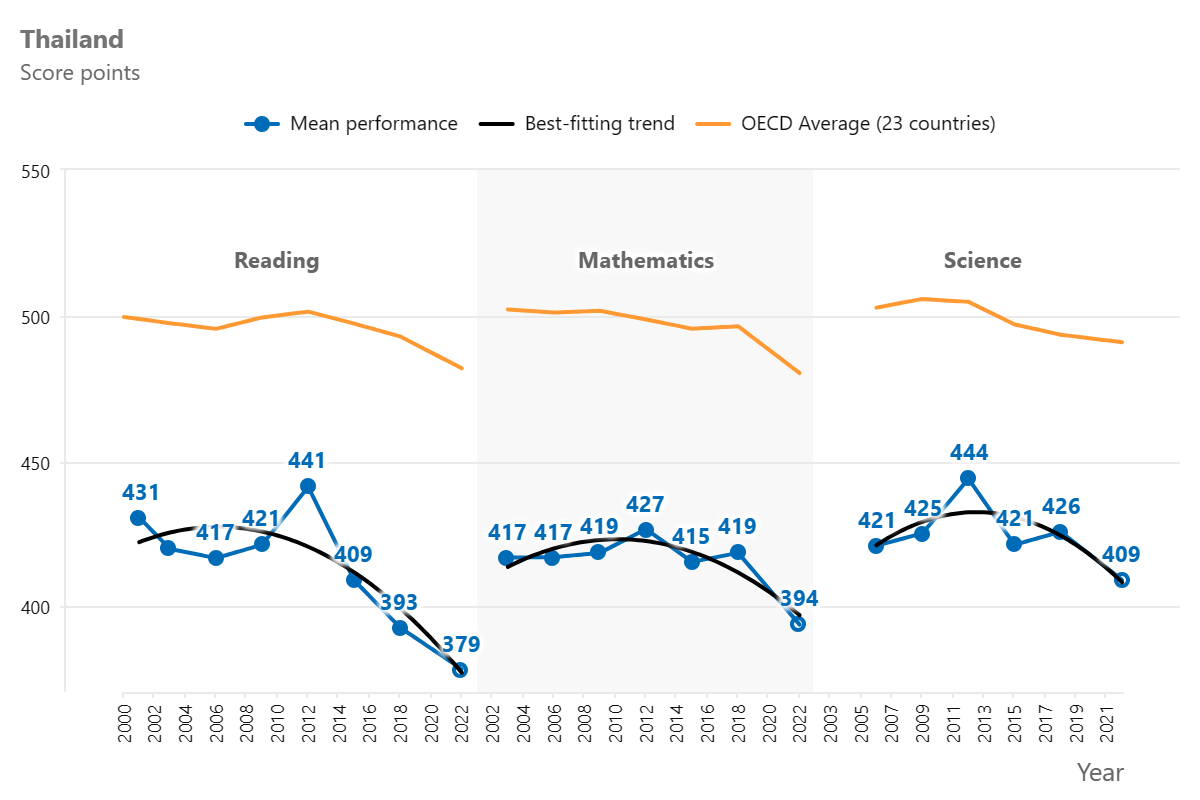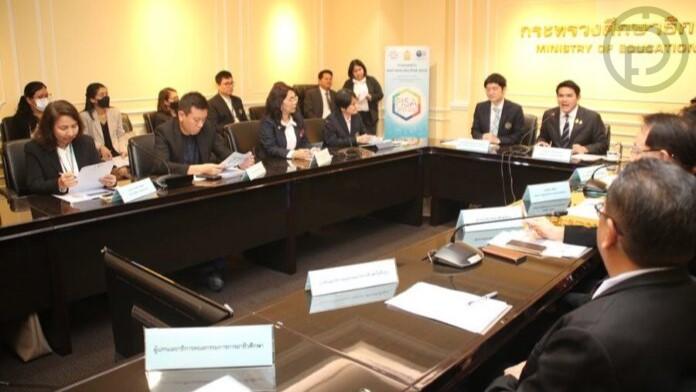National—
On December 6th, 2023, the Thai Institute for the Promotion of Teaching Science and Technology (IPST) publicly revealed a result of the 2022 Programme for International Student Assessment (PISA) of 15 years of age in that Singapore ranked number one in all skills on reading, mathematics, and science, meanwhile, Thai students showed decreasing scores in all skills.
PISA was founded by the Organisation for Economic Co-operation and Development (OECD) to evaluate students aged 15 years every 3 years from 81 countries.
Students from Macau, Taiwan, Japan, South Korea, and Estonia ranked in the top 10 in all skills on the 2022 PISA including mathematics, science, and reading skills. However, the average scores in the 2022 PISA showed the performance of students’ competencies in OECD countries/economies has dropped at an unprecedented rate.

SOURCE: OECD
Meanwhile, Thai students held the lowest scores recorded in 20 years in science, mathematics, and reading skills.
Mr. Surasak Phancharoenworakul, the Deputy Minister of Education, publicly revealed that the possible causes of the decreasing scores of PISA were the side effects of COVID-19 lockdowns and school closures, which lasted almost two years in total, and an ongoing inequality problem in Thailand, especially when access to technology may not be comprehensive.
This was a significant problem during the Covid-19 crisis because although many international students and some Thai public school students were able to learn remotely from home, other rural students and those lacking electronic equipment due to financial means essentially did not attend school for two years.
Surasak emphasized that for the next PISA in 2025, Thai authorities vowed to find a solution to improving PISA results. Mr. Srettha Thavisin, the Thai Prime Minister, also has concerns with the result of PISA and encourages relevant agencies to find a positive conclusion regarding the lower evaluation results, said Surasak.
Thai social media netizens have had a variety of comments and suggestions on the news, with many stating that although roughly two years of Covid-19 related-school closures certainly didn’t help student performance, that they also felt the overall culture and school structure needed to be drastically changed in Thailand as a whole to bring true impact and positive improvement.
Some of the common themes in comments online were that netizens felt that Thai curriculum in schools were too focused on repetition and attempting to influence student’s viewpoints on certain nationalistic, historical, and cultural topics versus focus on learning core skills like language, reading, math, science, problem solving, life skills, and more.
Some netizens also blamed problems in the Thai education system on lack of individual learning and recognising that different people have different ways of absorbing information, instead focusing on a one size fits all approach.
Meanwhile, as recently ordered by the Thai Minister of the Interior Anutin Charnvirakul, a focus on further teaching Thai culture, Thai history, learning about the Royal Family, and similar topics were to be expanded in the current Thai school curriculum.
This article originally appeared on our sister website The Pattaya News.




